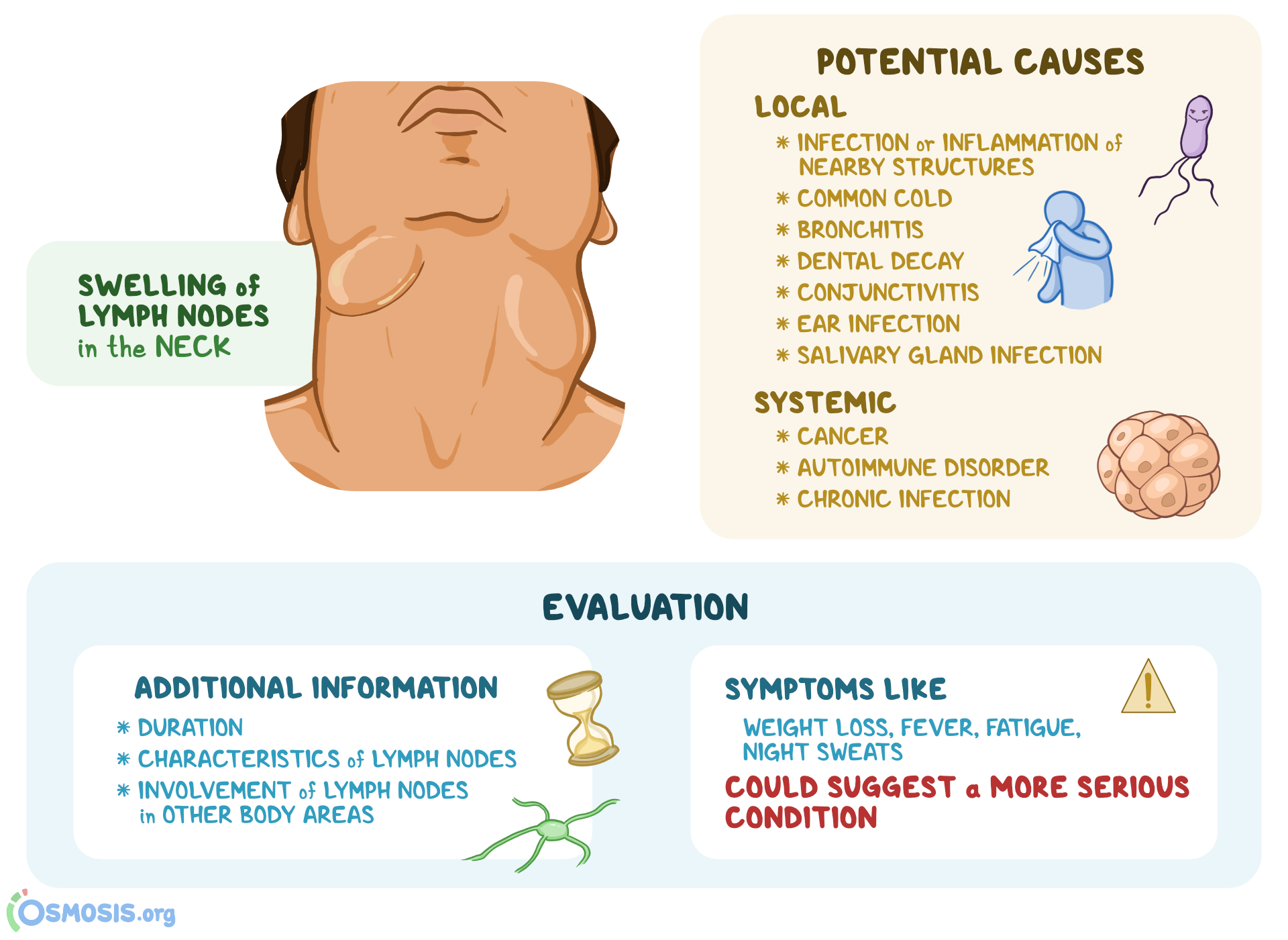What Are the Causes of Enlarged Lymph Nodes?

You may have noticed swollen lymph nodes in your neck, groin, or underarms. It is called generalized lymphadenopathy when the nodes swell in more than one location. The causes of swollen nodes are infections, certain medications, and diseases of the immune system, such as tuberculosis. There are also cancers that cause swollen nodes.
Fortunately, swollen lymph nodes do not necessarily mean that you have a serious illness. Often, these glands are simply responding to an infection or illness and fighting it. Occasionally, however, the nodes become swollen and tender as a result of a cellular immune reaction. The most common cause of swollen lymph nodes is autoimmune disease. Sometimes, the nodes are swollen as a symptom of a cancer.
When you notice an enlarged lymph node, the first step is to determine what the cause of the swelling is. It can be a bacterial infection or a viral infection. If it is an infection, it will most likely be a bacterial or viral infection. If it is an inflammatory disease, it may be a sign of a pulmonary disease. When the nodes are swollen, they will be difficult to locate.
An enlarged lymph node can be an indication of an infection. It can lead to an abscess or infection. It can also lead to nausea and vomiting. Other possible causes include autoimmune disease or an inflammatory response. In rare cases, swollen lymph nodes can be a symptom of cancer. It is important to know the cause of your condition so that you can make an informed decision.
An enlarged lymph node can be located anywhere in your body. The symptoms of swollen lymph nodes depend on the cause and location of the swelling. Some of the most common causes are a bacterial or viral infection. Lymph nodes can also be swollen and painful when they are near an infection. If an inflammatory reaction is suspected, a doctor should be consulted immediately and consulted on the health website https://hopitalcentral.org/.

A physical examination and medical history can provide clues to the cause of swollen lymph nodes. Patients with a history of cancer or other serious diseases are more likely to have lymphadenopathy, while patients without symptoms usually have an infection. Treatment will vary depending on the type of infection. If you ignore swelling, it can lead to a more serious condition. If the knots are hard, this may be a sign of a bacterial infection or malignancy.
A physical examination and a history of illness can help determine the cause of enlarged lymph nodes. A history of disease can also help determine a specific diagnosis. A bacterial infection can cause swollen lymph nodes, but it can also be the result of a virus or a fungus infection. The symptoms of a bacterium-related infection may include a fever, pain, and a rash.
If you have enlarged lymph nodes, you should consult your physician. Symptoms of lymphadenopathy can include fever, pain, and a fever. Other causes include a viral infection and an inflammatory disease. A bacterial infection can cause swollen lymph nodes. An inflammatory disease can lead to an inflammatory response in the body, causing inflammation and difficulty breathing. Regardless of the cause, the symptoms of a bacterial infection are usually similar to those of an inflammatory illness.
If you experience a fever or other symptoms, you should seek medical attention. A medical examination is a vital part of diagnosing a condition. It helps doctors identify a cause, which can affect the quality of your life. It is important to seek medical help immediately after noticing a swollen lymph node. It may be an indicator of a more serious condition. Inflammation of the lymph nodes can be a sign of many different conditions. A biopsy can help your doctor decide which course of action to take.
Acute bacterial infection can affect the lymph nodes in the neck. These glands are located in the neck and can be seen on the neck. They are commonly swollen and firm after infection and may persist for weeks. When they become inflamed, they can be a sign of a cancer. Although a simple tonsil infection will cause a swelling in the nodes, an enlarged node can be a warning sign of another underlying problem.
